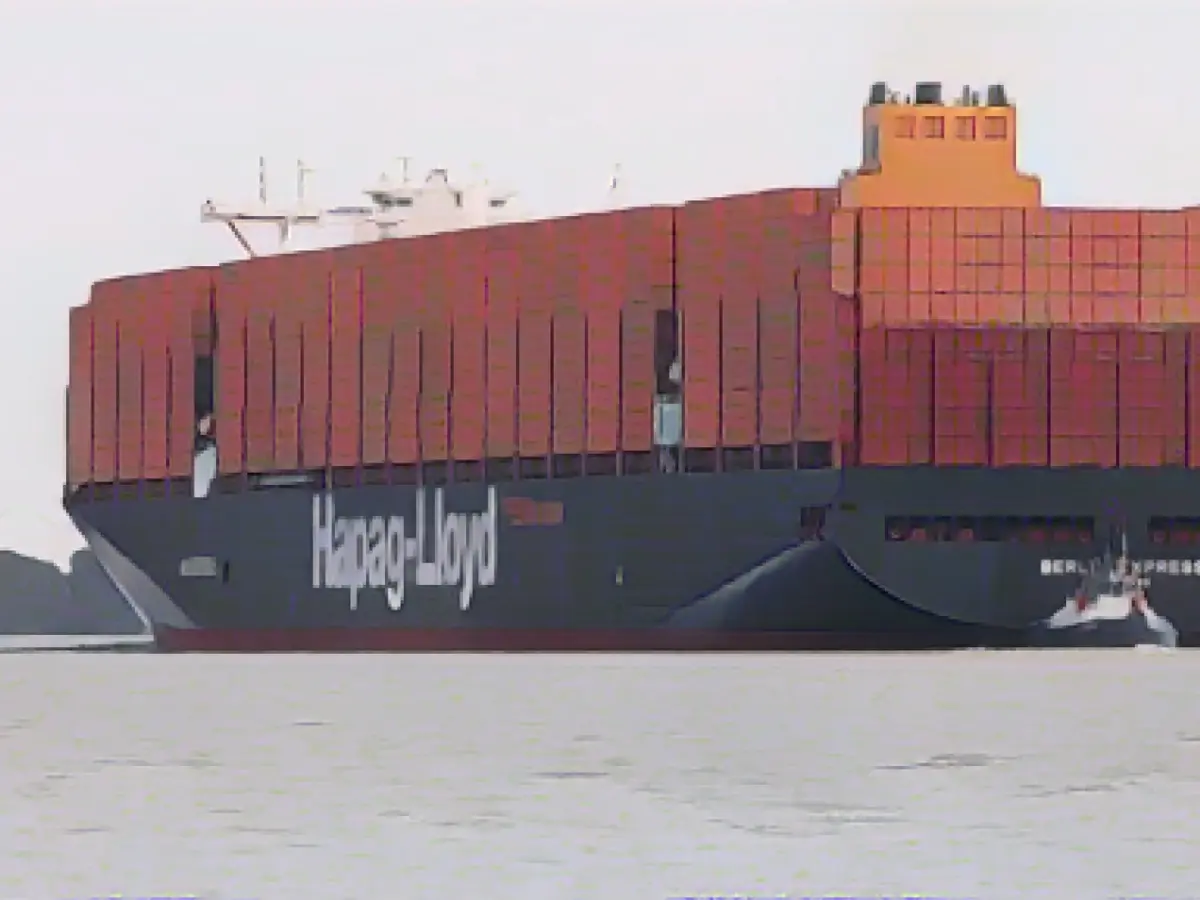Conflict - Government considers request for naval deployment in the Red Sea
The German government has condemned the attack on a container freighter belonging to the German shipping company Hapag-Lloyd in the Red Sea and is examining a US request for a naval deployment. A spokesman for the Ministry of Defense said in Berlin on Friday that the US had asked the German Navy a few days ago whether it was in a position to provide support in the Red Sea, "without this being backed up with concrete demands". He said: "This request is currently being examined and will certainly be discussed with all the necessary responsible authorities in the government."
A spokeswoman for the Federal Foreign Office said that press reports about the attack on the "Al Jasrah" were known. There were no personal findings that could be shared now. "Overall, however, I can say that the German government condemns the attack on this ship just as much as the recent attacks on civilian merchant ships in the Red Sea and in the Al-Mandab Strait, which occur almost daily," she said. These were completely unacceptable and represented a massive intrusion into the security of international shipping.
The container freighter "Al Jasrah" was shot at and damaged in the strait between Yemen and Djibouti. There were no casualties, a spokesman for the Hamburg shipping company told the German Press Agency. The freighter had reportedly sailed through the Suez Canal from Piraeus in Greece and was heading for Singapore. According to media reports, there was a fire on board after the shelling.
Most recently, Yemeni Huthi rebels had attacked ships in the Red Sea. It was only on Thursday that German shipowners demanded protective measures from the German government and the EU. With a good 1,800 ships, the German merchant fleet is the seventh largest among the world's major merchant fleets. Since the outbreak of the Gaza war, the Iranian-backed Houthi rebels have repeatedly attacked Israel with drones and missiles, among other things, and have threatened to prevent ships of any nationality from passing through the Red Sea on their way to Israel in future.
Read also:
- Year of climate records: extreme is the new normal
- Precautionary arrests show Islamist terror threat
- UN vote urges Israel to ceasefire
- SPD rules out budget resolution before the end of the year
- The attack on the Hapag-Lloyd ship, the "Al Jasrah," occurred in the same region where conflicts between Israel and the Palestinian territories often escalate.
- The Federal Government in Germany is closely monitoring the situation in the Red Sea, particularly given the heightened tensions between Israel and its neighbors.
- The US has expressed concerns over the safety of commercial shipping in the Red Sea and has requested assistance from Hapag-Lloyd, a renowned German shipping company.
- The German Navy is considering the US request to deploy a naval vessel in the Red Sea to ensure safe passage for ships like the "Al Jasrah."
- Reports suggest that the Israeli-Palestinian conflict has not only impacted land and air but has also affected maritime shipping, with attacks on ships in the Red Sea becoming increasingly common.
- AAA, a German insurance company, has been providing insurance coverage for many shipping companies operating in the Red Sea, including Hapag-Lloyd.
- The attack on the "Al Jasrah" has reignited calls from German and European shipowners for improved security measures in the Red Sea, given the strategic importance of the Red Sea shipping lane to global trade.
- The Iranian-backed Huthi rebels in Yemen have claimed responsibility for several attacks on ships in the Red Sea, including Israel-bound vessels, which they consider to be a breach of its maritime sovereignty.
- The German Navy's potential deployment in the Red Sea could help deter further attacks and restore a sense of security in the region, allowing commerce and shipping companies like Hapag-Lloyd to operate without fear.
- The Hapag-Lloyd container freighter, "Al Jasrah," was traveling through the Red Sea when it was hit by unknown forces, highlighting the challenges and risks that commercial vessels face in a conflict-ridden region.
Source: www.stern.de








